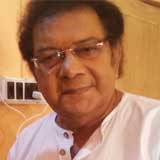Sambhu Mitra, undeniably the living legend of Bengali Theatre - GetBengal story
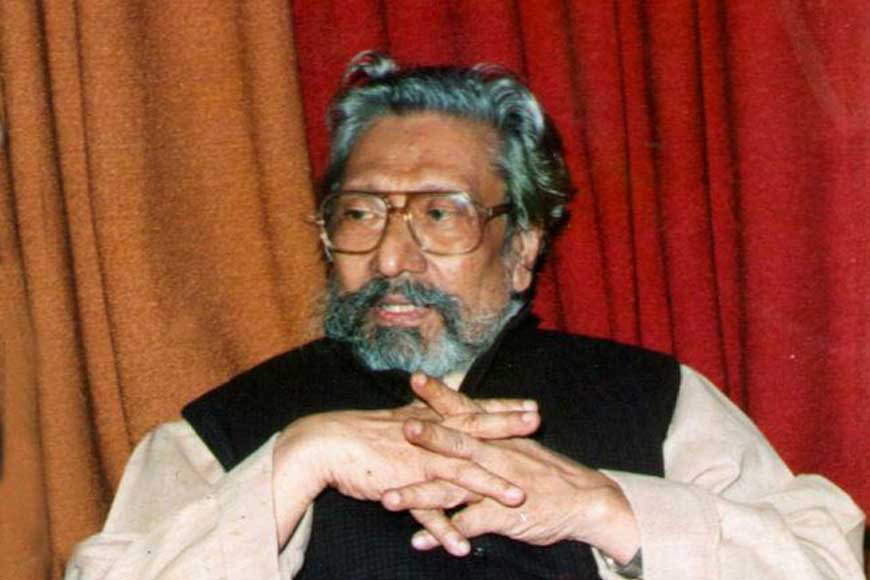
Sombhu Mitra, an eminent Bengali theatre personality
I still remember that particular day. It was a time when I had just completed my Masters in English. My friend, philosopher, guide and teacher Samik Bandopadhyay wanted me to join Bohurupee Theatre Group. Inspired by him, I went and met the Secretary of the group, who asked me to attend the rehearsals sharp at 6.30 pm.
That was the day I first met Sambhu Mitra, the living legend of Bengali theatre. I was 23 and just stood there in awe of him. It was like a dream come true. I had never imagined a day would arrive when I would get an opportunity to interact with such an icon, would get a chance to be his disciple. Sambhu Mitra noticed me and came forward. As he spoke, I was thrilled out of my wits. I stayed in the group for around 18 months. They were the most valuable months of my life when I learnt so much about theatre. My life spent in the close proximity of the legend. I was indeed enriched.
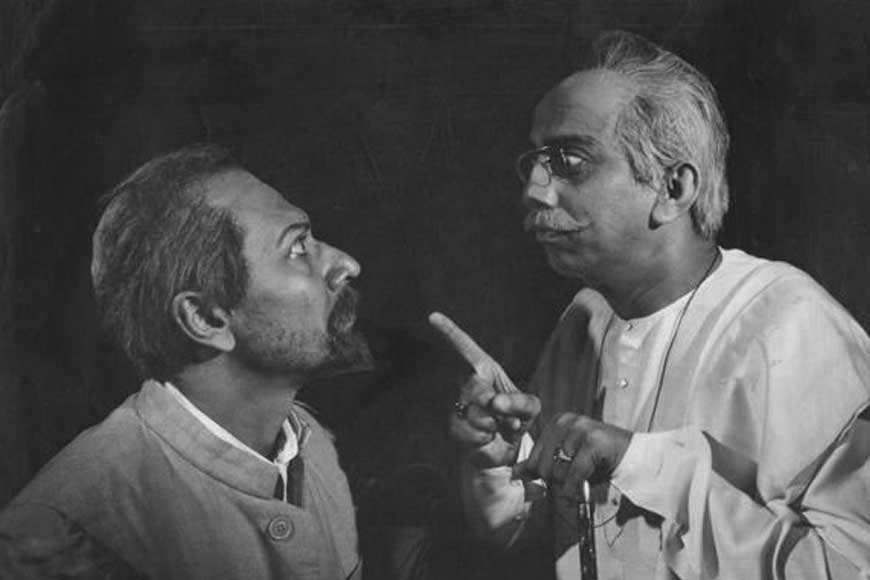
Sambhu Mitra had an eye problem. That’s why he needed to be accompanied while returning home from the rehearsal. His house at Naseeruddin Road was walking distance from the rehearsal room. Almost every day after rehearsal my friend Sankar Ghosh, a group member and I used to accompany Sambhu Mitra. The moment we used to reach near his house he used to ask: ‘Would you two like to have tea?’ And very gladly we used to say ‘Yes’, because we would be able to spend some more time with the legend.
Mitra used to narrate various experiences he had while directing the film Akdin Ratrey that featured Raj Kapoor and Nargis, at times he used to share several anecdotes related to his theatre experiences. And he himself made tea for us. One day I said: ‘Sambhu Da the tea is very good.’ He asked:
‘Keno?’
I said: ‘It tasted good.’
He asked: ‘Wasn’t it good yesterday?’
I said: ‘Yes.’
He said ‘Bawlo ni to, aj keno bolley?’ (You never mentioned before, then why now). I was at a loss as I had no answer. I said: ‘I don't know.’
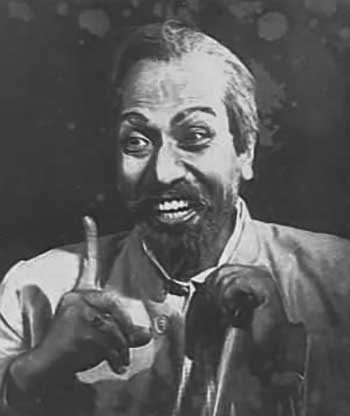 He said: ‘Listen Biplab, if you cannot say why you like something and why you dislike something, do not say it. If you say Sambhu Mitra is a good actor or a bad actor you must have the analytical power to substantiate your statement.’ This particular incident sowed the seeds of an analytical mind within me.
He said: ‘Listen Biplab, if you cannot say why you like something and why you dislike something, do not say it. If you say Sambhu Mitra is a good actor or a bad actor you must have the analytical power to substantiate your statement.’ This particular incident sowed the seeds of an analytical mind within me.
This was also a time when he was directing Pagla Ghora. I learnt from him how to deliver a dialogue bringing out the essence of each word that was being uttered with apt pronunciation, diction, inflection and scanning. He very vividly gave examples how the meaning of a sentence changed when every time an actor shifted emphasis from one word to the other. I still remember the sentence. It was ‘Baba you buy me a beautiful book.’ If you emphasise on the word ‘Baba’ you are addressing him. If the emphasis is on the second word ‘you’ that means you do not wish anyone else to buy a book for you except your father. If you stress on the word ‘beautiful’ the meaning automatically changes.
Watching Sambhu Mitra rehearse was fantastic. His performance as Atin in Rabindranath’s Char Adhyay was incredible. The ease with which he used to deliver the difficult dialogues was a treat to watch. The way he portrayed the Romantic rebel was exemplary. His body language in Oedipus, his personality projection in Dashachakra (an adaptation from Ibsen's An Enemy of the People), his portrayal of Raja in Raktokawrobi are all lessons for every aspiring stage actor.
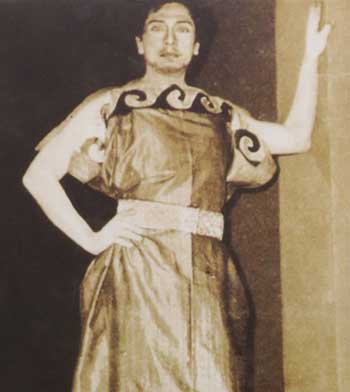 Those who were lucky to watch him in Mudra Rakkhos where he played Chanakya, one would know what a virtuoso performance it was. And imagine how fortunate I was that I could watch him rehearse for all these roles. Later, I had to leave the group as I joined an Advertising Agency. I was really sad that I had to, but what to do, theatre could never help me earn a living.
Those who were lucky to watch him in Mudra Rakkhos where he played Chanakya, one would know what a virtuoso performance it was. And imagine how fortunate I was that I could watch him rehearse for all these roles. Later, I had to leave the group as I joined an Advertising Agency. I was really sad that I had to, but what to do, theatre could never help me earn a living.
After many years I watched Sambhu Mitra perform Galileo at University Institute for Calcutta Repertoire Theatre. And that was another performance I will remember all my life. As a stage actor he really was exceptional not only because of his extraordinary mesmerizing voice and inflection but also the ease with which he used to project the personality needed for each role.
The greatest exponent of Modern Theatre who drew his inspiration from Occidental and Oriental Literature, Mitra continually gave new dimensions to theatre since forties. Starting his career with Nabanna, a social comment on Bengal Famine, a production of Indian People’s Theatre Association popularly known as IPTA, he moved out of IPTA and founded his own theatre group Bohurupee and directed memorable stage productions which will remain as classics.
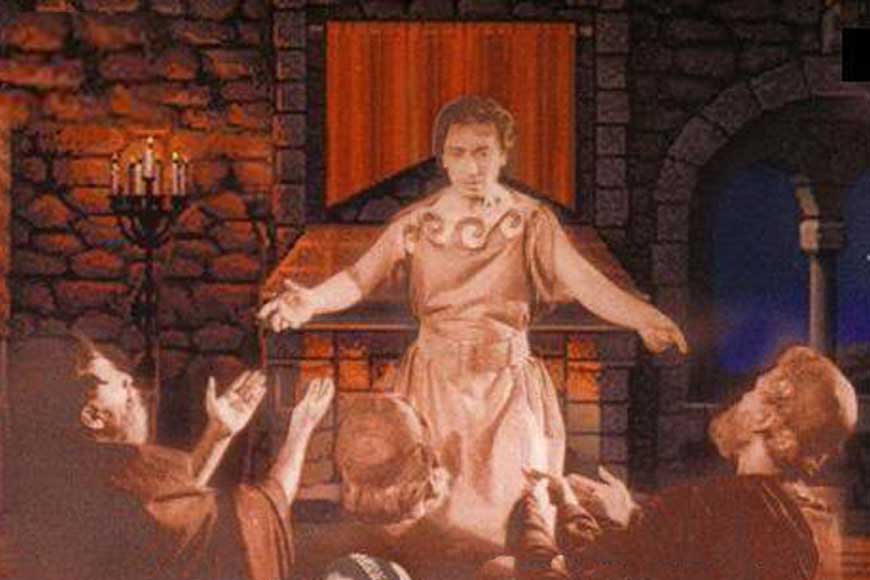
What is ironical is his exit from life. A drama personality who presented many memorable dramatic moments to the audience ensured that his departure from this world was undramatic.
His last wishes were respected by his daughter and very near ones. He ensured his body would not be kept at Rabindra Sadan for people to pay their last respect. He was cremated early in the morning in presence of his chosen few without any fanfare. The theatre world got the news of his demise only after the cremation. No one knows the reason why he took such a resolution.
May be somehow for some reason he was deeply hurt with the theatre world and wished to leave in silence.
First published on 19 May 2017






